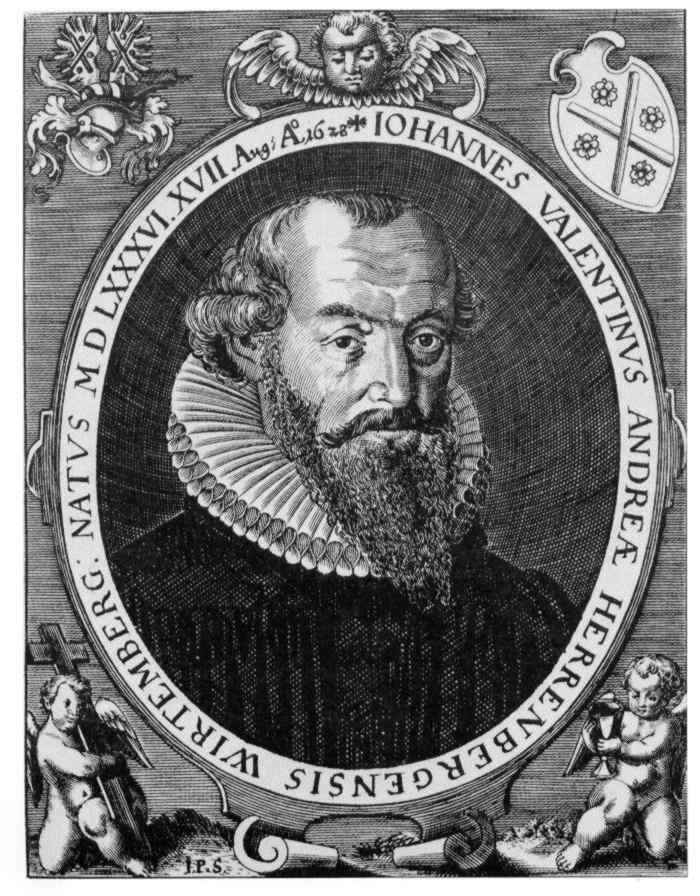Get Today in Masonic History into your Inbox. Sign up today for one of our email lists!
Need an article for your Trestleboard/Newsletter see our Use Policy
Johannes Valentinus Andreae is Born

Today in Masonic History Johannes Valentinus Andreae is born in 1586.
Johannes Valentinus Andreae was a German theologian.
Andreae was born on August 17th, 1586 in Herrenberg, Württemberg which is in the southwestern corner of what is now Germany. His father passed away when he was 15 and his mother moved him to Tübingen, a university town in Germany. There she eventually became the court apothecary. Andreae studied theology there from 1604 to 1606. It was during this period he wrote the first version of The Chymical Wedding of Christian Rosekreutz. He was refused a final exam from his studies for, it is believed, attaching a pasquill, a libelous and offensive note, to the door of a local chancellor on the day of the chancellor's wedding.
After leaving school, Andreae began teaching and hiked with his students around Europe, including Switzerland, France, Austria and Italy. During this time he visited Dillingen, a bastion of the Jesuits. Andreae felt they were the Antichrist. By 1608 he had returned to his home in Tübingen briefly before continuing his travels for the next several years.
In 1612, Andreae continued his theological studies in Tübingen. This time he was granted a final examination in 1614. After his examination he became the deacon in Vaihingen an der Enz, a town in southern Germany, Vaihingen is on the river Enz. In 1620 he was made the priest of the city of Calw, another city in Southern Germany.
As the priest of Calw he established various charity institutions and helped to raise money for the reconstruction of Calw during the Battle of Nördlingen which occurred during the thirty years war. One of the charitable organizations he created was the Christliche Gottliebende Gesellschaft ("Christian God-loving Society").
By 1639 Andreae was made a preacher at the court and councilor of the consistory in Stuttgart. There he advocated for reforms in the church. He also promoted Tübinger Stift, a hall of residence and teaching which was a seminary owned and supported by the Evangelical-Lutheran Church in Württemberg.
Andreae passed away on June 27, 1654 in Stuttgart.
Andreae as far as we know was not a Freemason. His contribution to masonic lore is his writing of the book The Chymical Wedding of Christian Rosekreutz. The book, which was published anonymously, is said to be the third manifesto of Rosicrucianism. Later in life Andreae took credit for writing it. The manifestos are believed to layout a "universal reformation of mankind." This is controversial and is not helped by the fact Andreae stated when he took credit it was a "ludibrium," a Latin word which in this context may mean lampoon or trivial item. The book is broken down into 7 sections similar to the book of Genesis and is largely about alchemy. On the subject of alchemy, Andreae later in life ridiculed the idea of alchemy and placed it with music, art, theatre and astrology as the 'less serious' sciences.
Regardless of Andreae's intent with the book it is considered, by some, as one of the founding manifestos of Rosicrucianism. Rosicrucianism is said to have had an influence on the formation of Freemasonry in Scotland.
This article provided by Brother Eric C. Steele.

